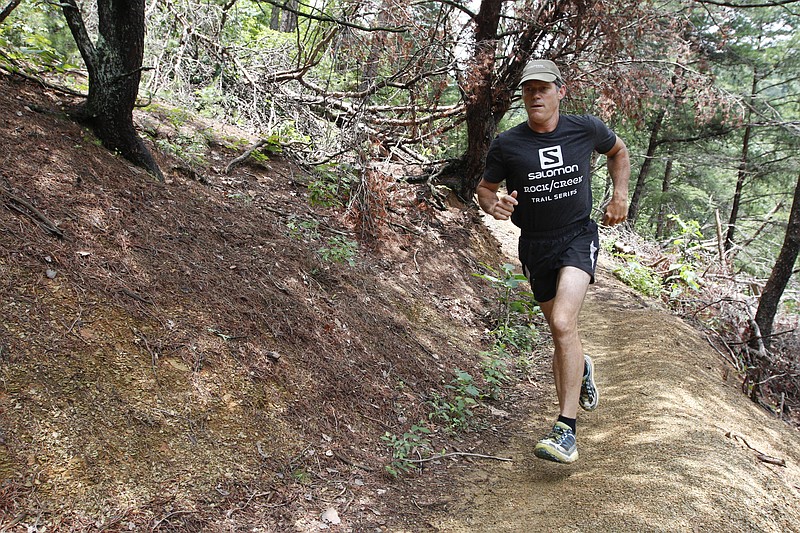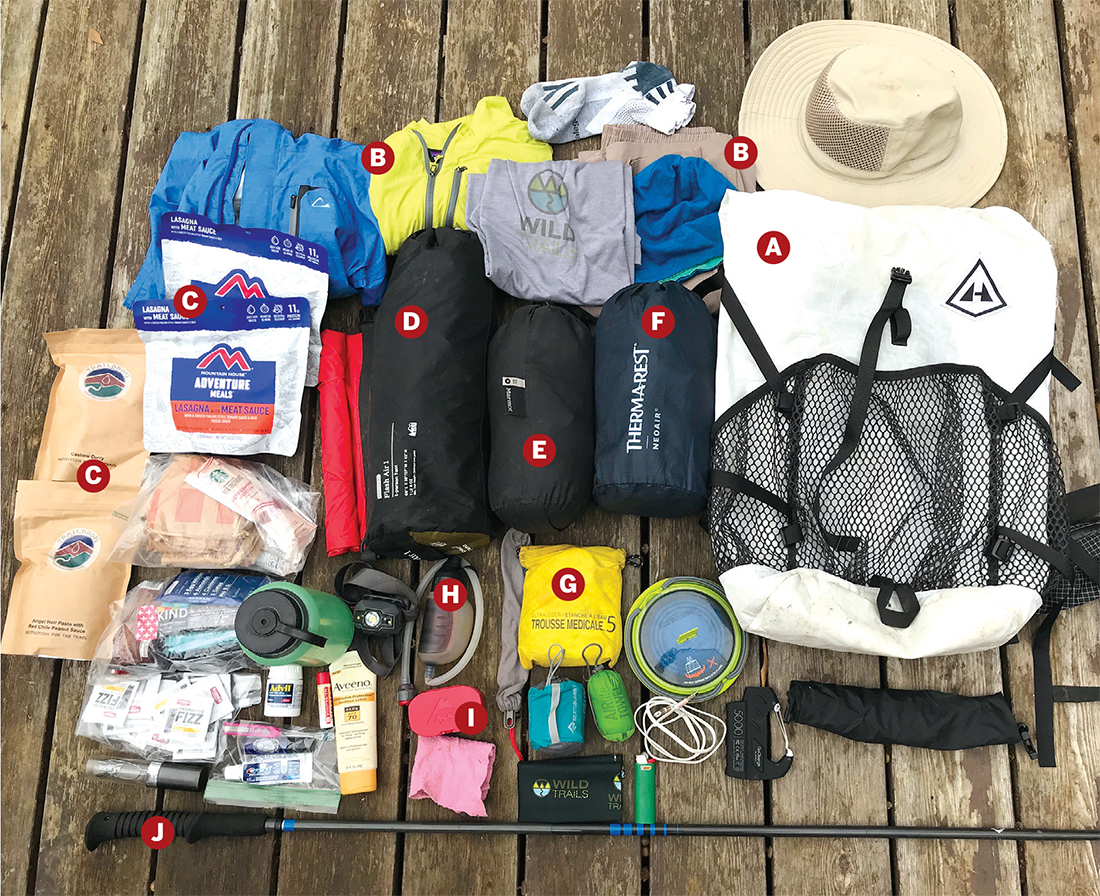Name: Randy Whorton
Age: 60
Passion: Endurance events
Randy Whorton likes a challenge, whether he's organizing trail cleanups and races as director of Wild Trails or competing in ultramarathons.
But after decades of 100-plus-mile trail races, in recent years, Whorton has sought new ways to test his endurance.
For the past seven years, he's "SUP'd the State" in a solo paddleboard expedition across Tennessee - comprising 392 miles, three rivers and four dam portages - which he does in just seven days. Last September, he planned a dual-sport "Cumberland Loop" challenge in which he solo backpacked 290 miles along the Cumberland Trail then paddleboarded 250 miles back to Chattanooga along the Tennessee River, which he finished in 19 days.
During his journey, Whorton carried almost everything he needed, planning few resupply spots along the way.
"I never really cared about (backpack) weight that much until this last year," he says. "In fact, I was the guy that was sort of proud to have the heaviest pack in the group."
But during the Cumberland Loop, his goal was to go for speed - prompting him to finally trade his 50-pound gear-stuffed pack, complete with a week's worth of food and water, for an 18-pound one.
"I've now got it down to under 15 (pounds)," Whorton says. "Ultralight packing is a bit pricier, yes, but the gear will last a very long time."
And he hopes his body will, too.
"My body is not as tough as it used to be," says Whorton. "I'm 60, and a lifetime of endurance sports has had some impact on me overall."
Lightweight backpacking, he says, should help keep him in the game longer - in both the long and short run. Last September, while on his Cumberland Loop challenge, Whorton was able to average 25 miles a day when backpacking.
"On previous trips, no matter how old I was, I always started the next day with a need to take it easy for the first few miles. On this trip, I was so surprised to find that, yeah, the legs were a bit stiff and needed some warm-up, but the back, shoulders and hips seemed relatively free of discomfort," he says.
Moreover, says Whorton, "I didn't feel the need to take my pack off during the day - at all. I even filtered water with it on. Ultralight packing is so much better, and I won't go back."
Here, Whorton shares a side-by-side look at how the ultralight gear he carries now compares to the conventional gear of his past, pound for pound and penny for penny.
While some things are standard for Whorton - lighter, lip balm, towel, for example - there are several main pieces of gear where weight can really be shaved, as well as a few essentials that can make a big difference.
Conventional gear
> Total weight: 36.2 pounds (not including water)
A. Arc'teryx Bora 65 (liter) backpack; 5.5 pounds, $360
B. Clothing; 5.3 pounds
C. Tasty Bite pre-prepared Indian entrees, plus side of rice; 1.3 pounds per meal, $5.50 per meal
D. Foam folding sleeping pad plus ground pad; 2.2 pounds, $20
E. Marmot 20-degree sleeping bag; 4.3 pounds, about $120
F. GeerTop Pyramid IOne Person Tent, plus ground pad; 3.7 pounds, $100s
G. Mountain Series medical kit; 0.9 pounds, about $25
H. Jetboil stove; 1 pound, about $60
I. SPOT satellite tracker; 0.03 pounds, about $150
J. Katadyn water filter; 0.9 pounds, about $45
* Miscellaneous, 2.5 pounds
(Toothbrush, toothpaste, Endurolytes Fizz tablets, headlamp, lip balm, Advil, sunscreen, Sea to Summit inflatable pillow, reading glasses, AirLite towel, tent light, baby wipes, paracord, tarp, Nalgene, charger, lighter, collapsible pot, cup and spoon, fuel [not pictured])
Lightweight gear
> Total weight: 16.6 pounds (not including water)
A. Hyperlite Windrider 40L backpack; 1.9 pounds, $320
B. Clothing, 2.1 pounds
>> "I used to bring more clothes than I needed. An extra jacket, socks, shorts, hat, wool shirt. [Cutting out those extra items] cut out at least 2 pounds," Whorton says.
C. Mountain House and TrailDrops freeze-dried meals; 0.3 pounds per meal, $9.50 per meal
D. Flash Air 1 tent; 1.6 pounds, $249
E. REI Magma 15 (degree) sleeping bag; 1.3 pounds, $389
F. Therm-a-Rest NeoAir XLite sleeping pad; 1.5 pounds, $145
G. Ultralight, watertight medical kit; 0.3 pounds, about $20
H. MSR Trail Shot water filter, 0.3 pounds, $45
I. MSR PocketRocket camp stove; 0.3 pounds, about $40
J. Black Diamond trekking poke; 0.3 pounds, about $170
* Miscellaneous, 2.5 pounds
(Sunscreen, lip balm, Advil, toothbrush, toothpaste, reading glasses, Endurolytes Fizz tablets, snacks, Nalgene, headlamp, rags, Sea to Summit inflatable pillow, AirLite towel, lighter, charger, collapsible pot, cup and spoon, fuel [not pictured])

